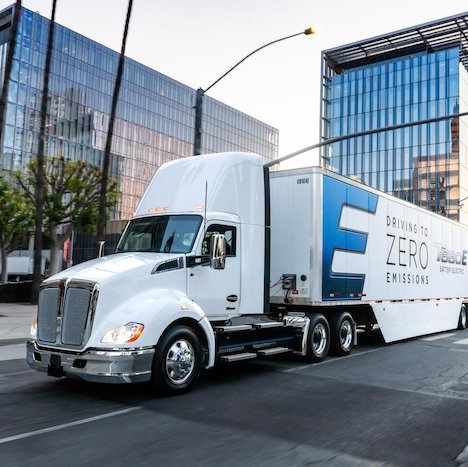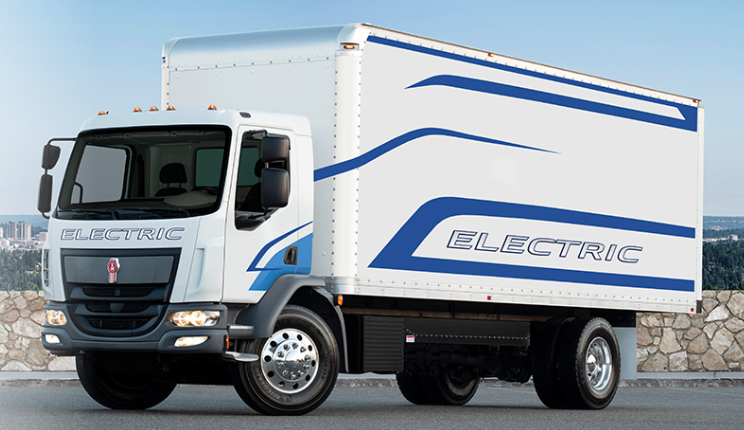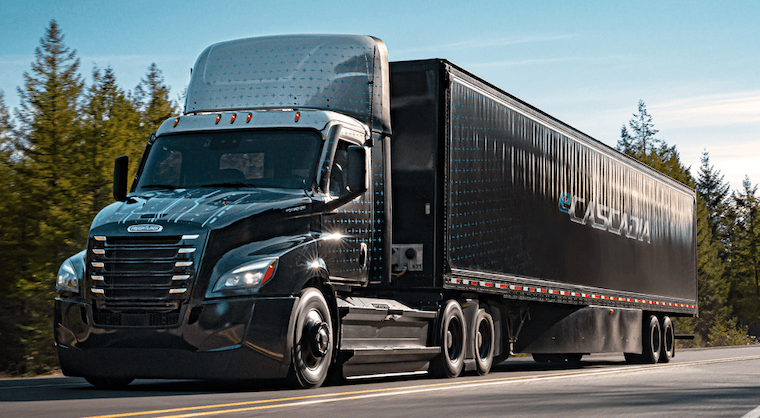
Electric Heavy Haul: Already Possible and Profitable!
16 October 2024
Freight transport is responsible for a significant proportion of the province's carbon emissions, as well as being a source of air pollution.
Government regulations could eventually force a gradual phase-out of gasoline and diesel-powered heavy-duty trucks in favor of electric trucks.
It is therefore important to take an interest in this new type of vehicle now, as the adoption of electric heavy-duty trucks is not as straightforward as the adoption of individual electric cars: it poses challenges in terms of range and battery size, as well as charging logistics, in addition to requiring major investments that need to be well planned to ensure profitability.
The adoption of an electric truck fleet must be gradual. Dozens of models of heavy-duty electric vehicles are already available for a wide variety of applications.
The Innovative Vehicle Institute (IVI) Plug-in Fleet project has identified the most cost-effective and electrifiable road and heavy vehicle profiles, as well as the winning conditions for successful operations. The project's analyses are based on actual geomatic data from 60 trucks at 20 Québec transport companies with a wide range of activities and over 800,000 kilometers of travel.
Experience shows that it is already possible and profitable to integrate Class 6 to 8 electric trucks in Québec. Even tractor-trailers, commonly known as “18-wheelers”, can already be electrified.

According to IVI, here are the winning criteria that make immediate electrification possible without any change to operations:
- Transport of dry goods
- Daily trips of up to 200 km
- Limited highway driving (lower speeds preferred)
- One shift per day (return to base at night) or pendular operation (possibility of charging for a few hours at each base).
The Plug-in Fleet project shows that the average additional cost of an electric heavy-duty truck and an appropriate charging station is around $75,000, after provincial and federal subsidies. A company that buys an electric heavy-duty truck can therefore expect a return on investment within 2.5 to 7 years. After 10 years, benefits of up to $194,000 can be observed.
In terms of reducing carbon emissions, the payback is almost immediate, within the first year, even including the additional emissions from manufacturing the vehicle and its batteries. For some fleet managers, obtaining carbon credits could also increase the profitability of electric trucks.
To find out more about the keys to success for electrifying heavy-duty trucks in Québec, IVI will be hosting a Running Electric webinar on November 5, where they will present the results of the Plug-in Fleet project. Register now, it's free!

Towards a gradual switch from diesel to gasoline-powered heavy-duty trucks

In the 2030 Plan for a Green Economy, the Québec government indicated its intention to define a ZEV standard for heavy-duty vehicles which would encourage heavy-duty automakers to sell more electric trucks over the years. Work is underway and a proposal to amend the existing ZEV Act to give it the power to regulate heavy-duty vehicles is expected to be presented to parliamentarians this fall.
The federal government is also fine-tuning its own standard for electric trucks. We already know that Ottawa is aiming for zero-emission vehicles to account for 35% of total sales of medium- and heavy-duty vehicles by 2030, and even 100% of sales by 2040 for certain types of vehicles.
---
(1) 9% of emissions according to L’État de l’énergie au Québec, 2024
(2) The provincial program Écocamionnage has been temporarily suspended since September 6, until further notice.
(3) Benefits observed among participants in the IVI's Plug-in Fleet project where electrification was most cost-effective.
Videos for more information (French only)
- Electrification of heavy-duty trucks: keys to success for a deployment in Quebec (Recorded webinar)
